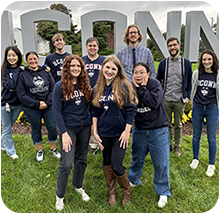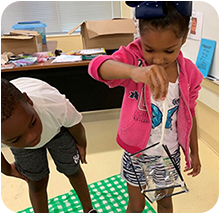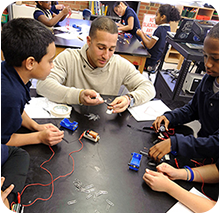The Renzulli Center for Creativity, Gifted Education, and Talent Development is one of the leading centers in the world in the area of gifted education and talent development. Our mission is to promote enjoyment, engagement, and enthusiasm for learning in teachers and students at all levels of education through high-quality research and outreach on innovative teaching approaches. Our work in talent development and gifted education is based on practical applications of over four decades of research, as are the direct services we provide to teachers, administrators, researchers, and policy makers throughout the world.
Renzulli Center for Creativity, Gifted Education, and Talent Development
2131 Hillside Road, Unit 3007
Storrs, CT 06269-3007
renzullicenter@uconn.edu
Tel: 860-486-4826
Fax: 860-486-2900
Located in Tasker Building





 Support the Renzulli Center
Support the Renzulli Center
